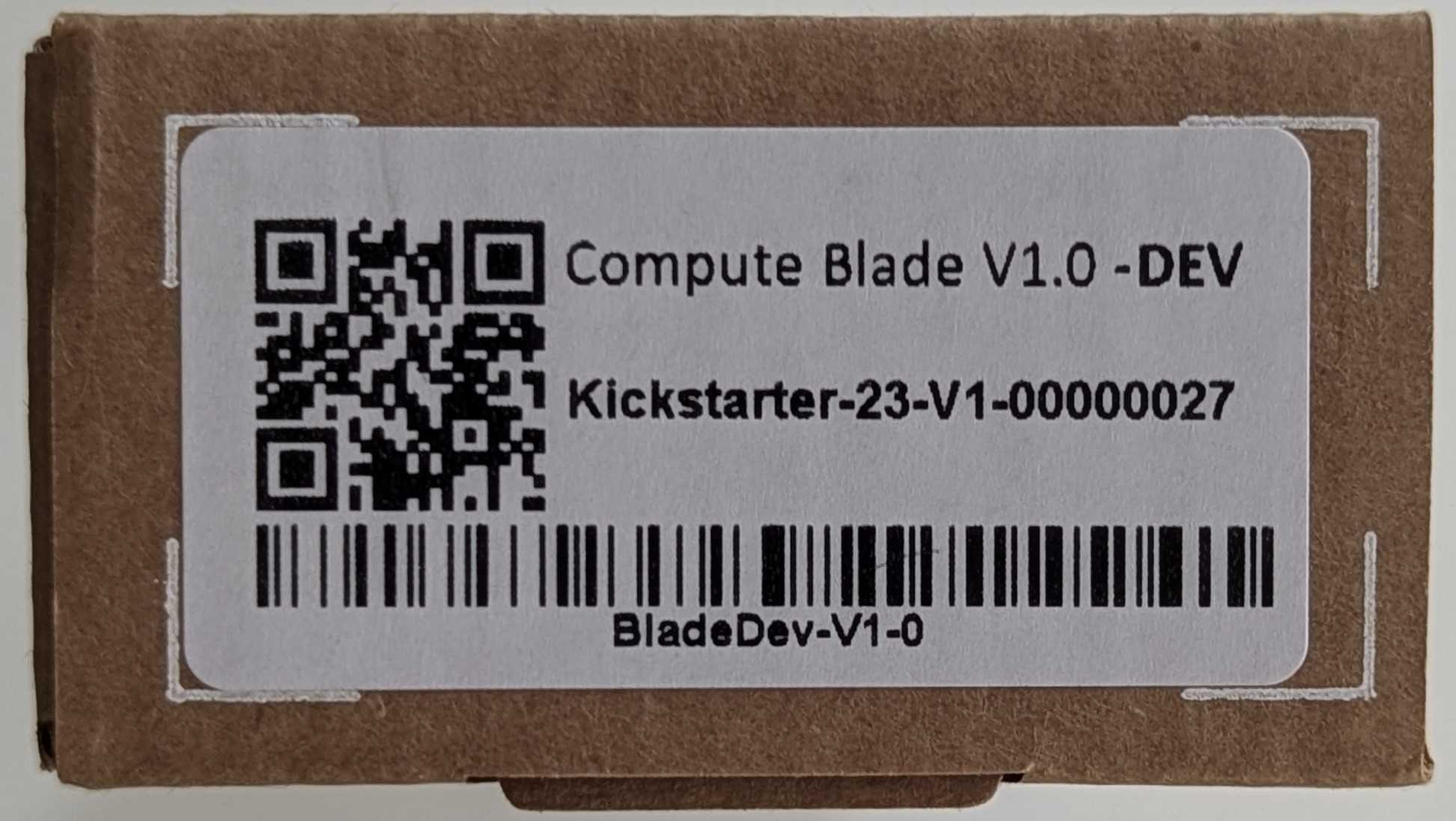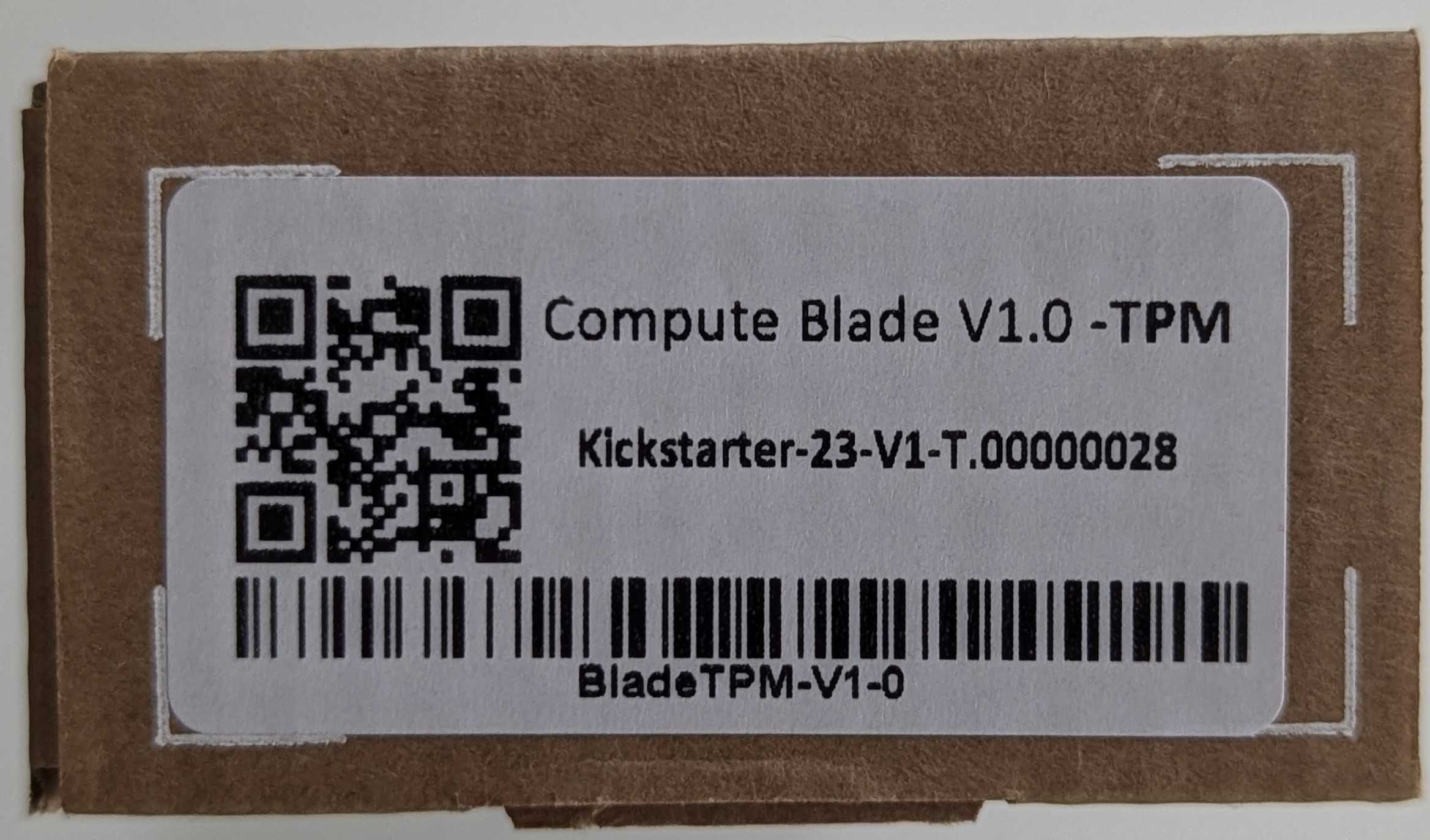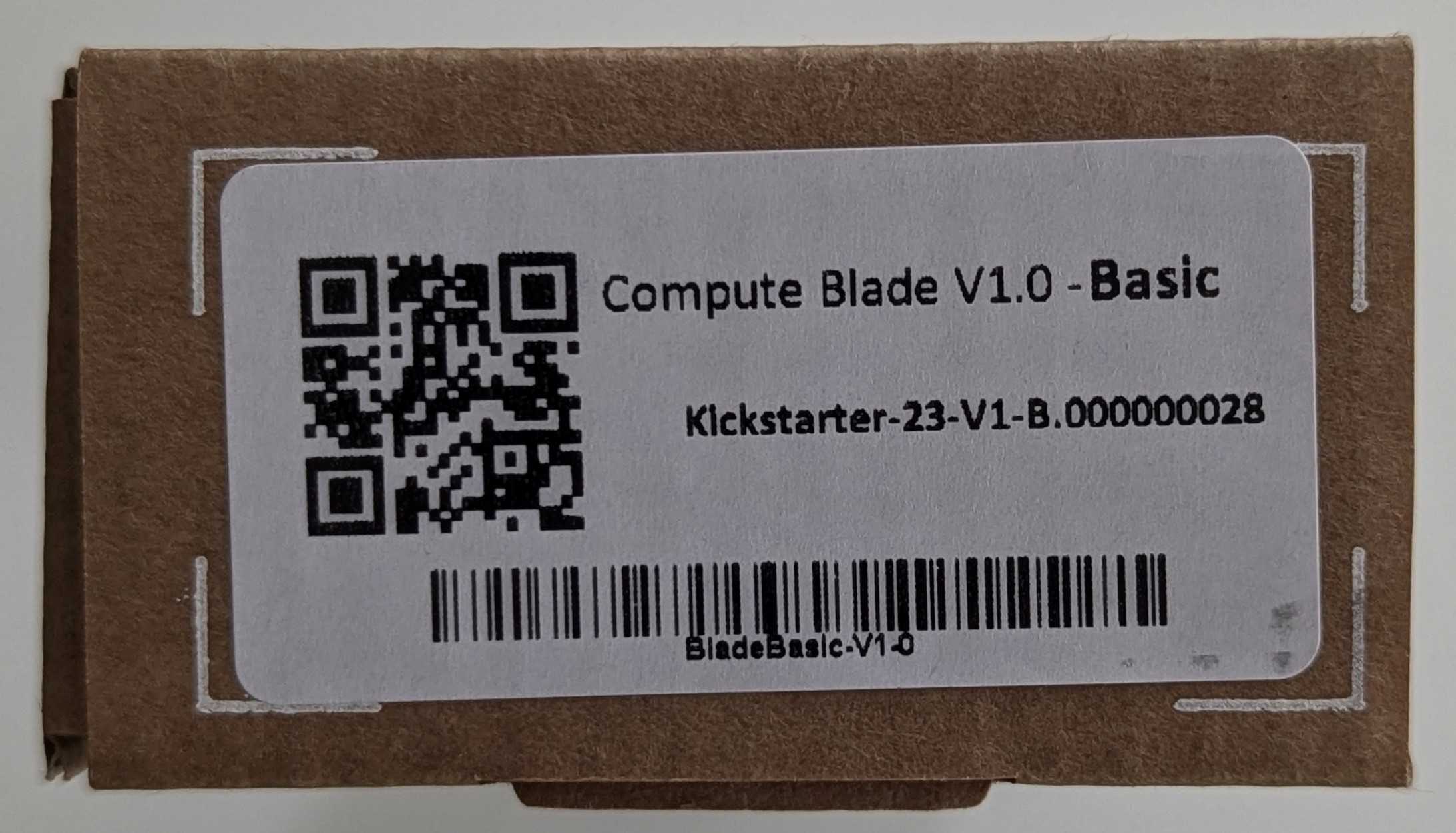Overview


Download the Datasheet
Features and Specifications
The Compute Blade comes in three different hardware variants.
- DEV
- TPM
- Basic
Dev Compute Blade


| Compatibility | Raspberry Pi Compute Module 4 / 4 Lite |
| Raspberry Pi Compute Module 4 Compatible Boards | |
| Storage | M.2 NVMe SSD up to 22110 |
| Micro SD Card on lite CM4 / CM5 | |
| eMMC on non-lite CM4 / CM5 | |
| GPIO | 2 x UART |
| 7 x User Controllable GPIO including I2C | |
| Fan Unit Connector | |
| Programmable Button | |
| 2 x Controllable RGB LEDs | |
| PoE+ Voltage | 40V-57V |
| PoE+ Current | 60 mA - 600 mA |
| 3.3V Output | 5A |
| 5V Output | 5.1A |
| Input Power (Normal Operation) | 2 - 8W |
| Ports | HDMI (4K60) |
| USB Type-A/Type-C | |
| Security | TPM 2.0 |
| Hardware switchable Wi-Fi, Bluetooth and EEPROM write-protection | |
| Support for ZYMKEY 4i, Security Keys |
TPM Compute Blade


| Compatibility | Raspberry Pi Compute Module 4 / 4 Lite |
| Raspberry Pi Compute Module 4 Compatible Boards | |
| Storage | M.2 NVMe SSD up to 22110 |
| Micro SD Card on lite CM4 / CM5 | |
| eMMC on non-lite CM4 / CM5 | |
| GPIO | 2 x UART |
| 7 x User Controllable GPIO including I2C | |
| Fan Unit Connector | |
| Programmable Button | |
| 2 x Controllable RGB LEDs | |
| PoE+ Voltage | 40V-57V |
| PoE+ Current | 60 mA - 600 mA |
| 3.3V Output | 5A |
| 5V Output | 5.1A |
| Input Power (Normal Operation) | 2 - 8W |
| Ports | USB Type-A/Type-C |
| Security | TPM 2.0 |
| Support for ZYMKEY 4i, Security Keys |
Basic Compute Blade


| Compatibility | Raspberry Pi Compute Module 4 / 4 Lite |
| Raspberry Pi Compute Module 4 Compatible Boards | |
| Storage | M.2 NVMe SSD up to 22110 |
| Micro SD Card on lite CM4 / CM5 | |
| eMMC on non-lite CM4 / CM5 | |
| GPIO | 2 x UART |
| 7 x User Controllable GPIO including I2C | |
| Fan Unit Connector | |
| Programmable Button | |
| 2 x Controllable RGB LEDs | |
| PoE+ Voltage | 40V-57V |
| PoE+ Current | 60 mA - 600 mA |
| USB Type-C @5V Current | 2mA - 2A |
| 3.3V Output | 5A |
| 5V Output | 5.1A |
| Power (Normal Operation) | 2W - 8W |
| Ports | USB Type-A/Type-C |
| Security | Support for ZYMKEY 4i, Security Keys |
Thermal Configuration
The Compute Blade is designed for deployment in enclosures, supporting configurations from a single pair in desktop enclosures to up to 10 pairs in a 19-inch 1U Rack BladeRunner rack-mounted chassis. Each pair is cooled using a specially designed Fan Unit equipped with a single 40x40x20mm fan.
The design of the Fan Units provides robustness and reliability: in the event of one Compute Blade being disconnected or failing, the Fan Unit will continue to operate, maintaining effective cooling for the remaining blade.

The Compute blade has not been validated without the addition of the Fan Unit, BladeRunner™️, and Heat Sink
Cooling Configuration
Paired Blades: Pairs of Compute Blades are physically separated and each pair is cooled by its dedicated Fan Unit.
Fan Unit Design: The Fan Units are designed for easy replacement without interrupting operation. Each Fan Unit receives power from both Compute Blades in the pair, ensuring that the fan continues to run even if one of the blades is powered off.
Thermal Dissipation Capacity
This cooling configuration can dissipate up to 60W of heat per slot, which represents the maximum power consumption of two blades. This level of thermal dissipation corresponds to an extreme case scenario. On average, measured thermal dissipation for a pair of Compute Blades rarely exceeds 20W.
Block Scheme
This is the top part of the Raspberry Pi's GPIO connector. On the Compute Blade, PIN 1 corresponds to 3.3V, while on the Raspberry Pi's standard connector, it is labeled as 3.3V PWR.
- DEV
- TPM
- Basic



Mechanical
